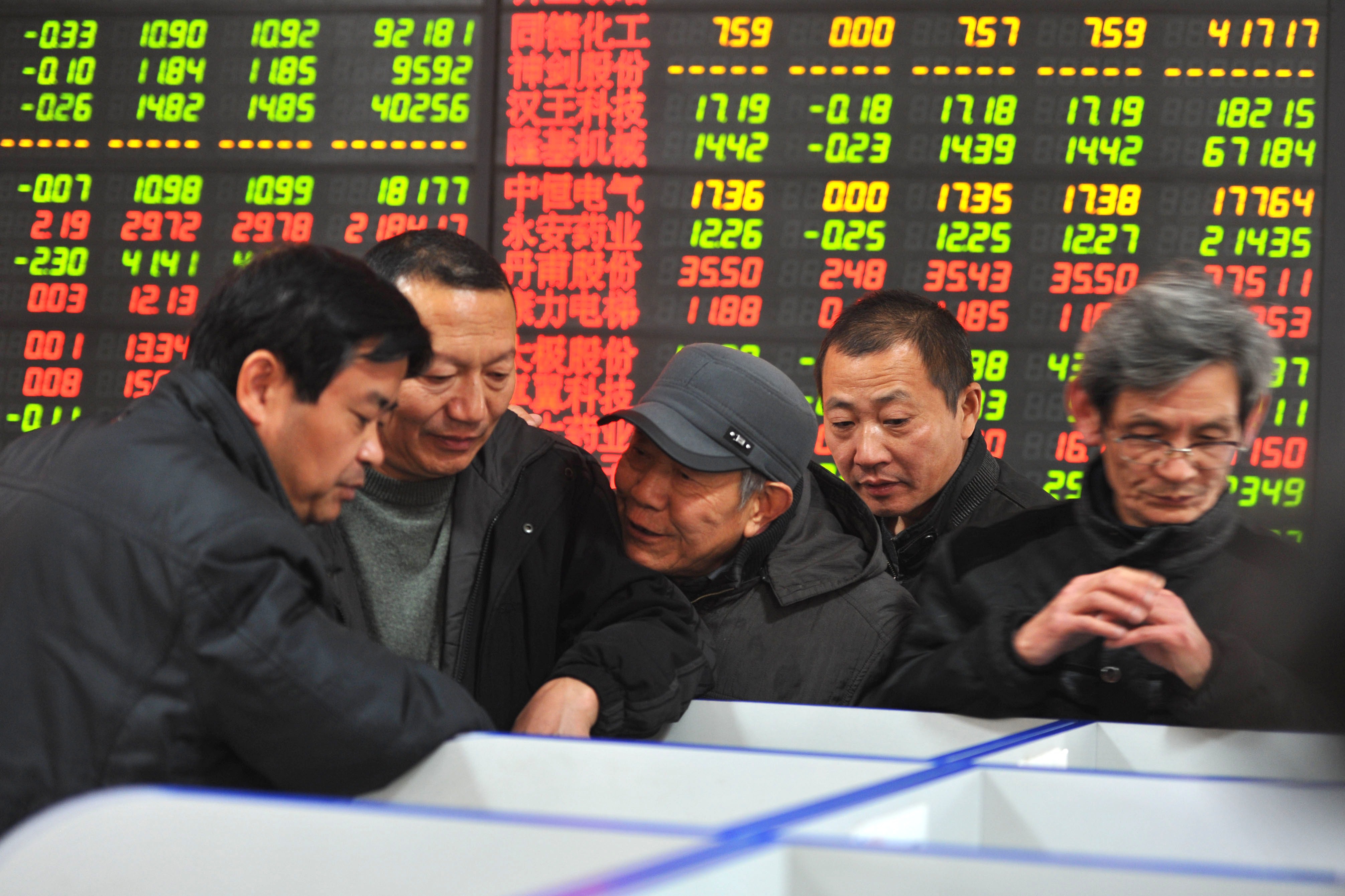China's market mayhem
Everything you need to know, in four paragraphs

A free daily email with the biggest news stories of the day – and the best features from TheWeek.com
You are now subscribed
Your newsletter sign-up was successful
Here's everything you need to know, from all perspectives, in four paragraphs:
The numbers coming out of China in recent weeks have been "mind-boggling," said Larry Elliott at The Guardian. After share prices shot up by 150 percent over the past year, Chinese markets have been on a dizzying descent, losing more than 30 percent of their value in the space of the past month. Millions of ordinary Chinese, many of whom borrowed money to buy stocks during the bull run, face "potentially ruinous losses." Fearing a historic market collapse that would rival the likes of "Dutch tulips, the South Sea Bubble, and the Wall Street Crash," Beijing has stepped in with extraordinary measures to halt the rout — cutting interest rates, halting trading for hundreds of listed companies, and buying up stocks with public money. "In the short term at least, it seems to have done the trick." But the worry is that the market turbulence is "indicative of a deeper malaise."
"Do not expect any quick return to normality," said Craig Stephen at MarketWatch. Investor confidence has been "rattled," as has the credibility of Beijing, which has promised for several years to let market forces and consumer spending play a larger role in the economy without interference. The government's "bizarre interventions" raise the question of whether the Chinese economy is worse off than reported. The ups and downs of the stock market "have little to do with the ups and downs of the real economy," said Jeff Spross at The Week. Beijing knows that, and the fact that Chinese leaders pumped money into the markets anyway shows they are willing to do almost anything to avoid "political embarrassment" and maintain their grip on power.
The Week
Escape your echo chamber. Get the facts behind the news, plus analysis from multiple perspectives.

Sign up for The Week's Free Newsletters
From our morning news briefing to a weekly Good News Newsletter, get the best of The Week delivered directly to your inbox.
From our morning news briefing to a weekly Good News Newsletter, get the best of The Week delivered directly to your inbox.
"Have we hit peak China?" asked Michael Auslin at The Wall Street Journal. Economists are now beginning to see China less as an engine of global growth and more as a "source of worries." Beijing has steadily lowered GDP growth targets in recent years, and even these lower estimates likely mask the true slowdown in production and economic activity. The country is also struggling with enormous debt and a tightening labor market. It might be time to prepare for a "falling China."
"An epic economic collapse in a giant Asian economy isn't necessarily a huge problem for the United States," said Matthew Yglesias at Vox. When Japan suffered a "lost decade" in the 1990s, America had its most robust growth in a generation. Nor is continued growth in China "particularly significant to American businesses": Total U.S. exports to China account for just 0.7 percent of U.S. GDP. What would matter is if Chinese leaders "lose their appetite for overhauling the economy," said Robert J. Samuelson at The Washington Post. Transitioning to a consumer-led economy is exceedingly difficult, but in China's case, it would "be better for China and everyone else." The country would be more insulated from global instability and its cheap exports less threatening to other countries. Are leaders in Beijing willing to stay the course, given the latest setbacks? Whatever they decide will have "huge consequences for the rest of the world."
A free daily email with the biggest news stories of the day – and the best features from TheWeek.com
-
 Why is the Trump administration talking about ‘Western civilization’?
Why is the Trump administration talking about ‘Western civilization’?Talking Points Rubio says Europe, US bonded by religion and ancestry
-
 Quentin Deranque: a student’s death energizes the French far right
Quentin Deranque: a student’s death energizes the French far rightIN THE SPOTLIGHT Reactions to the violent killing of an ultraconservative activist offer a glimpse at the culture wars roiling France ahead of next year’s elections
-
 Secured vs. unsecured loans: how do they differ and which is better?
Secured vs. unsecured loans: how do they differ and which is better?the explainer They are distinguished by the level of risk and the inclusion of collateral
-
 The pros and cons of noncompete agreements
The pros and cons of noncompete agreementsThe Explainer The FTC wants to ban companies from binding their employees with noncompete agreements. Who would this benefit, and who would it hurt?
-
 What experts are saying about the economy's surprise contraction
What experts are saying about the economy's surprise contractionThe Explainer The sharpest opinions on the debate from around the web
-
 The death of cities was greatly exaggerated
The death of cities was greatly exaggeratedThe Explainer Why the pandemic predictions about urban flight were wrong
-
 The housing crisis is here
The housing crisis is hereThe Explainer As the pandemic takes its toll, renters face eviction even as buyers are bidding higher
-
 How to be an ally to marginalized coworkers
How to be an ally to marginalized coworkersThe Explainer Show up for your colleagues by showing that you see them and their struggles
-
 What the stock market knows
What the stock market knowsThe Explainer Publicly traded companies are going to wallop small businesses
-
 Can the government save small businesses?
Can the government save small businesses?The Explainer Many are fighting for a fair share of the coronavirus rescue package
-
 How the oil crash could turn into a much bigger economic shock
How the oil crash could turn into a much bigger economic shockThe Explainer This could be a huge problem for the entire economy